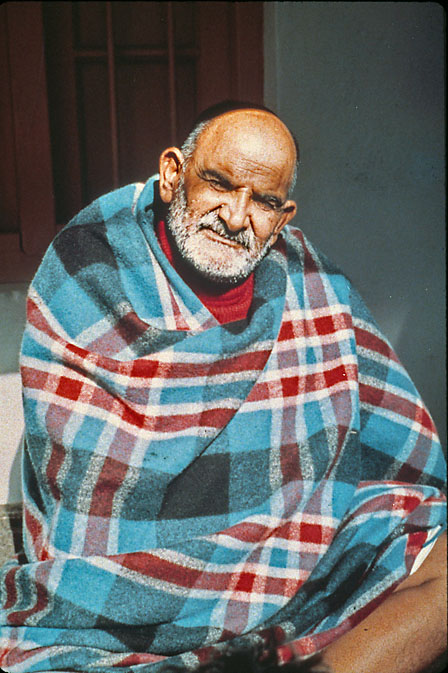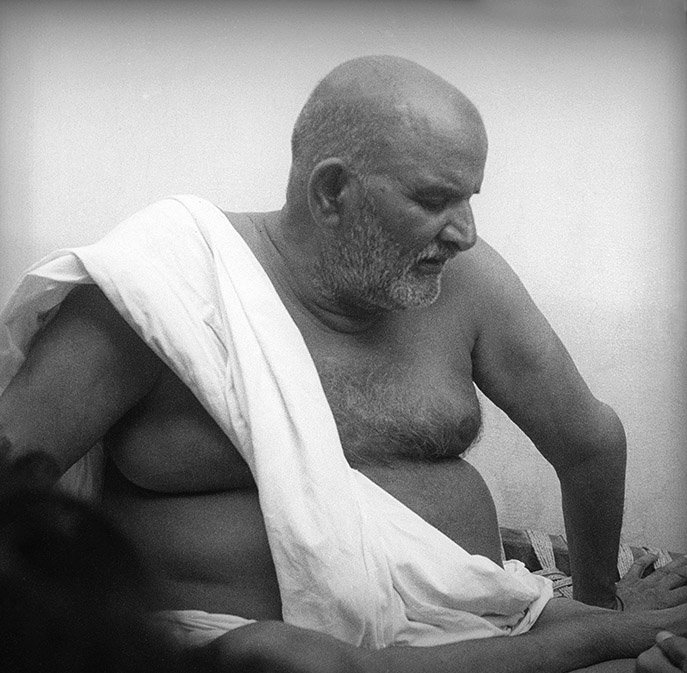Kainchi
 After the Kainchi ashram was built, Babaji began spending the summer months there.
After the Kainchi ashram was built, Babaji began spending the summer months there.
In 1964, when some devotees were going there, I was asked to accompany them. I explained that I had to stay back because Babaji might visit at any time.
When the devotees got to Kainchi, Baba asked what my reply had been when invited to come to Kainchi. Then Babaji said, "Dada cannot leave his house because of my unscheduled visits. But those who are near to me do not bother about me."
In May 1966, we received a letter from Babaji, who was already in Kainchi, asking us to come as soon as the university closed. Didi and I reached there within a week. This was our first visit. Babaji was waiting for us in his room.
While sitting with him, a devotee brought a basket of various kinds of fruits from his garden. Babaji took out some of the fruits and showed me which I might eat and which I should avoid. After I had my tea and prasad, he took me around the ashram.



 My mother and aunt were deeply religious and accepted Babaji as the head of the family.
My mother and aunt were deeply religious and accepted Babaji as the head of the family. Babaji's miracles were well-known. Swami Vijayananda, an eminent sadhu writing about Babaji, said that Baba Nibkarori's very name radiated an aura of mystery and miracles.
Babaji's miracles were well-known. Swami Vijayananda, an eminent sadhu writing about Babaji, said that Baba Nibkarori's very name radiated an aura of mystery and miracles. As I have said before, when I first met Babaji I was not at all interested in sadhus or saints. It was out of sheer grace that he visited our house.
As I have said before, when I first met Babaji I was not at all interested in sadhus or saints. It was out of sheer grace that he visited our house. We are not following the guru; the guru actually is following us.
We are not following the guru; the guru actually is following us.